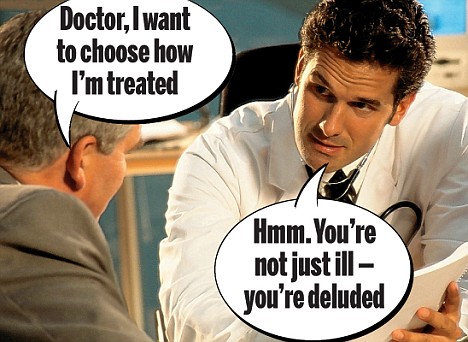In a brief blogpost on ‘patient choice’, it’s hard to do anything really innovative like adding 2 and 2 to make 5. ‘Patient choice’ has been a game of ping-pong for the Conservatives and Labour, as this hot potato has been thrown around by Andy Burnham, Pat Hewitt, Alan Milburn, Andrew Lansley, and many others. They won’t be the first or the last.
Often the Annual Report is a dry statement of a state of affairs. Used creatively, it can be an ambitious marketing document. For example, in their Annual Report (downloadable here), Circle of Hinchinbrooke fame, refers to “significant gains in the number of patients being offered choice, …”, and then, “Firstly, we referred the issue of consultants’ contracted hours to the NHS Co-operation and Competition Panel (‘CCP’) which accepted our argument that consultants should have the freedom to practice at the location of their patients’ choice.” And then – “Secondly, we referred Primary Care Trusts (‘PCT’s) that were restricting NHS patients’ choice to the CCP, which again ruled in favour of patient choice.” Circle quickly pop it in then in the context of “Extended Choice Network”. Andy Burnham, back in 2006, in an extensive report on choice, explained that, for the public, “patients want and value choice: evidence from pilots, patient and public surveys and focus groups has shown this. Indeed, in 2007, Patricia Hewitt unveiled, “[a] new Choice website will allow members of the public and clinicians to access a range of information through one super site that will act as a one-stop gateway to navigate NHS services.”
There is a backdrop of Labour, through Alan Milburn, rejecting an ‘overcentralised State’, and Andy Burnham, while being fundamentally proud of NHS values, advocating de-centralised Foundation Hospitals. Given that this concept is being used by all parties, socialists have a different political definition of ‘choice’ compared to others such as libertarians. Socialists believe in sharing risks in society, where there aren’t winners or losers; this is why philosophically libertarianism is so difficult to reconcile with utilitiarianism (maximum benefit for all, amongst other things).
Having started with marketing and philosophy above, there are critical other aspects to this ‘choice’ debate from different academic disciplines, I feel:
1. Economics. (a) Patricia Hewitt’s website only works on complete, high-quality information. With people not disclosing full information because of patchy coverage nationally, ‘moral hazard‘ may occur where one party carries the risk for another party’s lack of provision of information. Corporates will have to be mandated to disclose all their results, including less impressive health outcomes. (b) The market will be oligopolistic, with some suppliers preferring not to participate in certain unprofitable markets, like dementia, meaning the ability to maximise shareholder dividend, with venture capital backing, in an uncompetitive market quite likely.
2. Accounting. The cost of collecting statistics, many of which can be irrelevant, needs resources, and can be expensive. This is for example the reason why some companies, unless they are large, do not collect metrics about activity in costing their business activities (“activity based costing”, as this is far too costly potentially) Who’s going to decide what information to collect and who’s going to collect this information in a small GP surgery or DGH?
3. Medicine. Quality healthcare depends not only on systems being in place for healthcare such as patient safety, but fundamentally depends on the quality of the physician and GP. For example, a provisional diagnosis of pneumocystis carinii can be made in A&E by a simple device that measures oxygen plummeting on somebody climbing a flight-of-stairs. It doesn’t need a multi-million £ CT machine, with costs transferred to the patient aka customer, and even the chest x-ray might be unhelpful.
4. Law. Choice is well known to the lawyers in the guise of competition. The regulatory mechanism is clearly inadequate in the new Health and Social Care Act. Agreements between competitors setting their prices collectively, price-fixing or abuse of dominant position would be clearly illegal under UK or European Competition Law, thankfully.
5. Ability of a patient to act on the information. Ultimately the patient is not specialist enough to choose between hospital suppliers anyway, and may not be able to implement his/her choice easily (unless the Government chooses to allow more ill patients greater personalised budgets, or travel expenses for travelling to distant units).
Either way, the NHS has now embarked on an experiment which it seems it cannot reverse, and which has not been mandated by any voter. It has been entirely enabled by the Liberal Democrats. The Socialist Health Association should explain why the socialist model does not throw up these problems, because ultimately we want an excellent service for everyone, irrespective of state-of-health or ability-to-pay.



